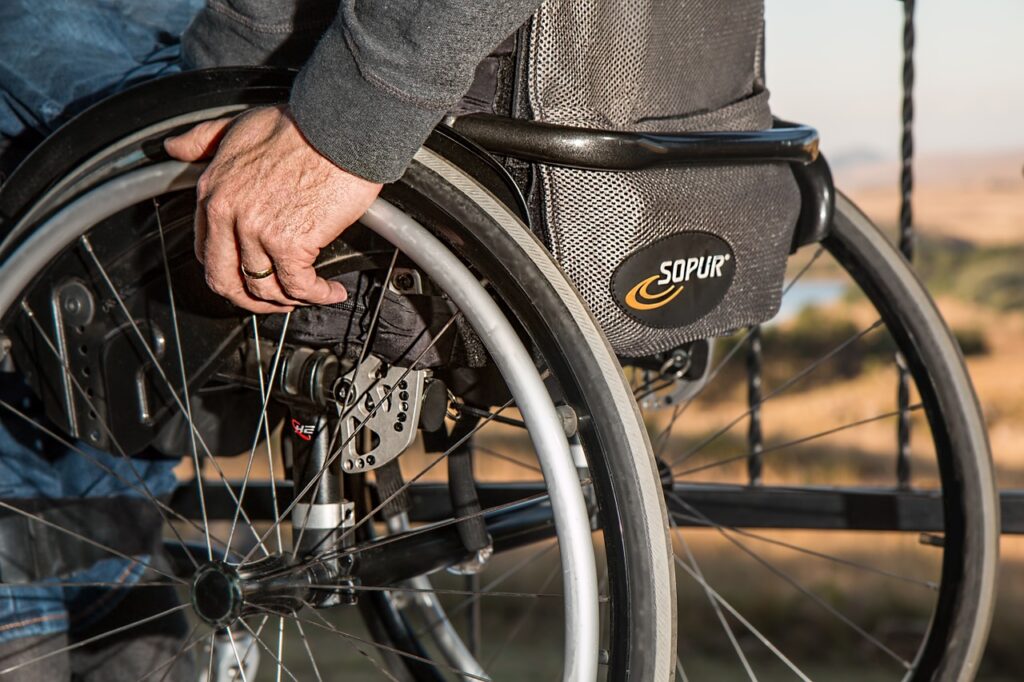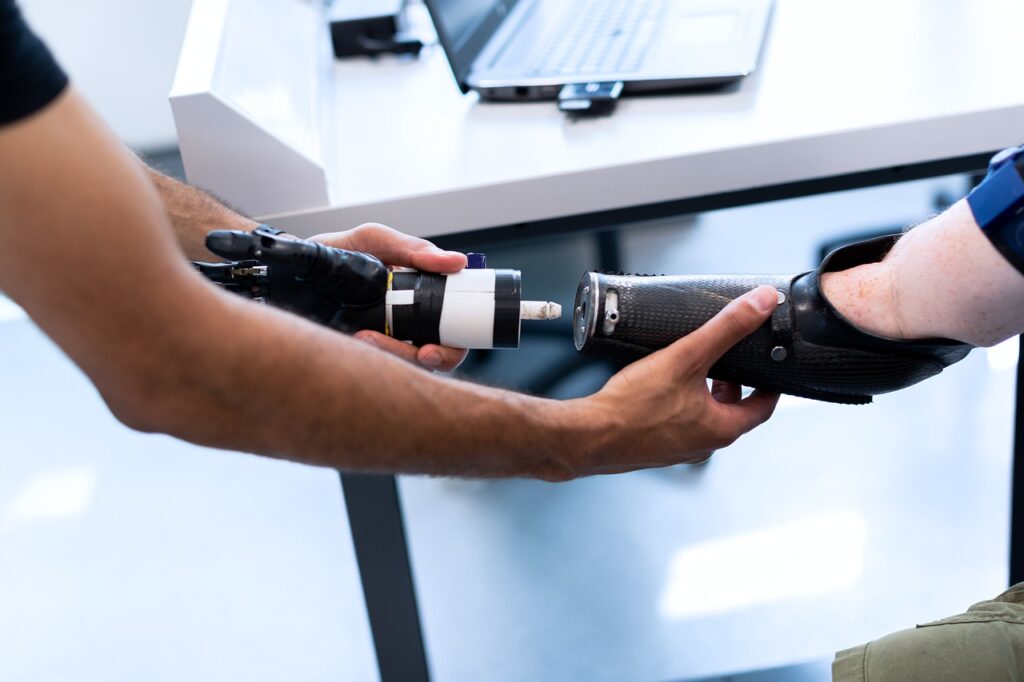- Home
- Get Help for Addiction
- Alcoholism and the Disabled
Alcoholism and the Disabled
Unfortunately, people who suffer from a disability -whether it is a physical or mental disability- have to overcome challenges on a daily basis.
Society has a long way to go when it comes to making a more inclusive and disability-friendly world.
This includes better accessibility, tackling harmful stereotypes as well as a better understanding of how the disabled are affected by issues such as addiction.
In fact, alcohol is the most commonly abused substance within the disabled community.
What Classifies As A Disability?

When it comes to looking at disability within any demographic, it is important people understand what classifies as a disability and what does not.
A disability is when someone suffers from a limiting condition, whether that be physical or mental.
This condition makes it increasingly difficult to take part in normal, day to day activities, and also makes it harder to function within their surroundings.
There are hundreds of different types of disability, all with different causes and consequences.
However, most disabilities tend to affect the following things:
- A person’s eyesight
- A person’s movement
- Their ability to function mentally and think
- Their ability to remember things (either long or short term)
- Their ability to learn new skills or retain information
- Their ability to hear
- An individual’s mental health
- An individual’s ability to function socially
The WHO has identified three factors which form a disability.
These factors include:
- Impairment to an individual’s body or mind
- Limit to an individual’s ability to see, move, hear or think
- Limit to an individual’s ability to undertake daily tasks such as walking, working or socialising
Some of these disabilities might have been present since birth, whereas some become apparent as an individual gets older.

There are many reasons why someone might be disabled.
Some of these reasons include:
- Genetics
- The consequence of exposure to something harmful during pregnancy
- A developmental condition that occurs as a child gets older
- An accident where someone obtains an injury
- Lifestyle decisions
Physical Disabilities And Alcoholism

There is no doubting the fact that an addiction to alcohol has negative consequences and effects on an individual’s physical health.
So, for those already suffering from a physical disability, alcohol addiction can make matters a lot worse.
People with a disability are at risk of suffering from pain, a lower mood, mental health issues or a poor self-image.
For these reasons, individuals with a disability often struggle more day-to-day and are perhaps more likely to consume alcohol or other substances more often as a form of support or escapism.
As these struggles tend to happen on a daily basis, sometimes their alcohol or substance consumption can become out of control.
Pain

A large reason why someone with a disability might consume alcohol is to deal with their pain.
A lot of people with a physical disability have to experience significant pain and often attempt to overcome this pain with alcohol.
However, alcohol consumption is never the answer.
By using alcohol to try to manage your pain, you are only ever going to make the pain worse in the future.
Whilst it might relieve pain for now, you are only prolonging it for the future.
According to NHS Scotland, below is a list of the most notable conditions that tend to also suffer from alcoholism within the UK.
- Cancer
- Diabetes
- Dementia
- Gastro-oesophageal disease
- Severe arthritis
- MS (Multiple Sclerosis)
- Parkinson’s
- Brain damage
- Spinal cord injuries
- ALS (Amyotrophic Lateral Sclerosis)
Not only are those with these conditions more likely tosuffer from an alcohol addiction as a result of their disability, but an alcohol addiction can even cause some of these diseases.
For example, a severe addiction to alcohol can cause some serious health issues such as liver disease, blood pressure issues, cancer and heart disease.
Mental Disabilities and Alcoholism

Not only does excessive alcohol abuse have an impact on an individual’s physical health, but it also affects an individual’s mental health, too.
It is well studied that excessive alcohol use physically changes how the brain functions and works, as well as altering individuals’ hormones and therefore mood.
Even moderate alcohol use can alter an individual’s mood, activeness and patience.
However, heavy and excessive alcohol use can be known to lead to a whole host of different psychiatric disorders.
In fact, an alcohol addiction is present within 3.6% of all adults in the UK who suffer from a mental health issue.
Some of the most common mental health issues include:
- Depression
- Anxiety
- Bipolar Disorder
- OCD
- Paranoia
Dual Diagnosis

If you think that you are suffering from a dual diagnosis -suffering from both a mental health condition and an addiction- then there is a list of symptoms to watch out for.
Have you started to:
- Crave time alone
- No longer crave food
- Find yourself suffering from fatigue and a general lack of energy
- Lack concentration
- Feel easily irritated
- Neglect your basic needs and responsibilities
Risk Factors for the Disabled

If you are consuming more than 15 units of alcohol (if you are a man) and 12 units of alcohol (if you are a woman) every week, then you are at risk of developing alcohol addiction.
Likewise, if a family member is or has been suffering from addiction, then you are also more likely to suffer from addiction yourself.
On the other hand, if you suffer from a disability then you are putting your health at risk by consuming alcohol excessively.
For example, it is much harder to identify an alcohol addiction or SUD in someone who is disabled than it is for someone who is fully abled.
It also makes their pre-existing conditions much worse and harder to deal with on a day to day basis.
For those people suffering from a disability who live in communal living, such as a care home, it can become increasingly difficult to live within such a tight knit community.
A study carried out by PWID highlighted that the majority of people with a disability understand that drinking alcohol excessively is bad for their physical and mental health.
Treatment for an Addiction to Alcohol

If you are suffering from an addiction to alcohol whilst also suffering from a disability, then there are lots of treatment options available to you.
Whether you opt for inpatient or outpatient treatment, you will have full access to most, if not all, of the same treatment options as everyone else, depending on your disability.
If you are suffering from a mental health issue or disability, then you will be treated for a dual diagnosis via therapy.
These therapies include CBT, DBT, one to one therapy, group therapy, self-help groups, brief interventions and holistic therapies.
Getting Help Today

If you are looking for help with your alcohol addiction, then speak to a member of the Rehab Recovery team today.
You can start by calling us on 0800 088 66 86 or by visiting us online at www.rehab-recovery.co.uk
With the right support behind you, no addiction is too large to overcome.


